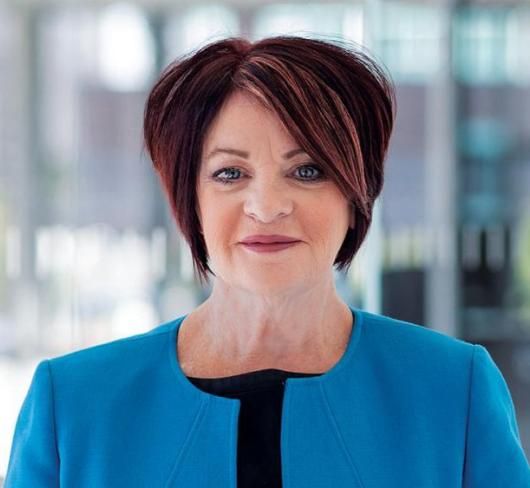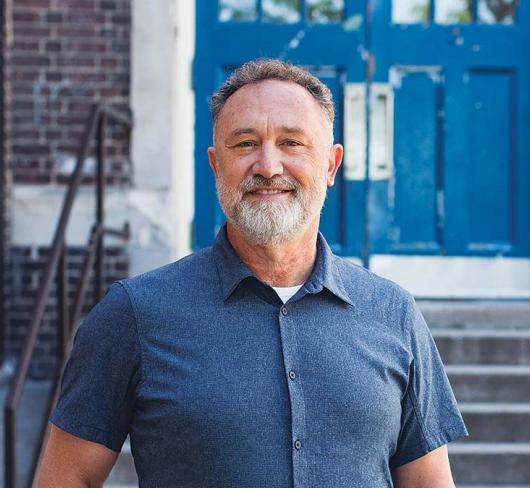
Your federation
… And Still We Rise
Just like moons and like suns,With the certainty of tides, Just like hopes springing high, Still I’ll rise.
— Maya Angelou
ETFO’s annual leadership conference for women, …and still we rise, celebrated its tenth anniversary this year. The conference takes its name from the Maya Angelou poem, Still I Rise. The theme this year was Working Together to Create Healthy Schools and Communities. Speakers, panel discussions, academic presentations, and workshops offered a variety of perspectives on how this goal can be accomplished. The importance of humour as a key component in maintaining a healthy lifestyle was emphasized by plenary speakers Linda Edgecombe, Sue Stephenson, and Meg Soper. Linda Edgecombe’s keynote address set the tone for the conference. She asked participants to look inside themselves. “Are you doing the best you can? Re-engage. Are you on a deferred life plan, leaving things for later? Re-energize. When was the last time you did something for the first time? Re-invent.” Participants were inspired to find the meaning in what they do and let go of what’s not working.
An award-winning humourist, Edgecombe helped participants take a different perspective on the challenges life throws at them every day. “Learn. Love. Laugh. If you are not laughing, you are not learning. All successful people in the world have a great sense of humour.” She went on to say that “leadership and getting a life is no more and no less than the spaces you create. Think of the spaces you create around you at home, or in the classrooms.” She reminded her audience that life’s ultimate goal is happiness and urged them to find out how to spread happiness around.
Life is about what you give to those around you, she said. “It is just a physics equation. Energy in is equal to energy out. So give off the energy to get it back.”
Edgecombe is the author of Shift or Get off the Pot. All participants at the conference received a copy of the book. Comedienne Meg Soper also focused on the need for humour and balance to meet the tensions of the workplace and the inevitable obstacles of daily living. “You need humour to survive life. It’s your perspective that keeps you from getting knocked off. Wit, fit, and balance – these are the strategies for success,” Soper said. She used humour to inspire the participants to reflect on the state of their spiritual, emotional, and physical ”fuel tanks.” Like Edgecombe, Soper noted that an individual has the power to change her perspective. “What counts is not what happens to us, but how we react to what happens to us. You can choose to have a good day or not. You can shift your perspective, find humour. Don’t take yourself too seriously. Accept what you can’t change; change what you can,” she said, reminding the audi- ence that not everything can be controlled: “Do not choose to focus on what doesn’t go right. You are blessed because you make a difference in people’s lives. You can see the difference you make in the self-esteem of a child from September to June. You are in the business of empowering people.”
Sue Stephenson began her presentation by asking people to turn to the person next to them and start laughing. The effect was contagious, and that was her point: she believes laughter is a choice. The laughter continued when she showed a video clip of three babies laughing. “Laughter,” said Stephenson “prevents hardening of the attitudes.” She outlined the physical benefits that result from laughing and focusing on the positive.
Stand Up for Mental Health (standupformentalhealth.com) is a project that gives individuals with mental health issues an opportunity to learn the art and craft of stand-up comedy. In moving performances, three of the project’s participants demonstrated how they used comedy to address painful episodes in their lives. The project is sponsored by the Mood Disorder Association of Ontario (mooddisorders.on.ca).
Sally Armstrong addressed the theme of creating healthy schools and communities from the perspective of confronting injustice. A human rights activist, documentary filmmaker, and award-winning author, Armstrong focused on the need to take action when confronted with injustice. Her book TheVeiled Threat: The Hidden Power of the Women of Afghanistan is about the struggles of Afghani women during the Taliban era.
Armstrong talked about the awful consequences of looking the other way when you know something is wrong. She said that for years “for politically correct reasons, people looked the other way and said [what was happening to women in Afghanistan] was not their business. But evil thrives on apathy, so apathy is evil. The nature of goodness has a keen resemblance to intervention.” Armstrong stressed that moral courage is an essential quality of those who are willing to change the world. Together, women can change the world, Armstrong believes. The women of Afghanistan are now coming together. “This is how change begins,” she said, referring to the successful fight by Afghani women against a law that would have legalized rape in marriage and prevented a woman from leaving the house without her husband’s permission.
Jane Bluestein, an experienced educator, provided participants with ideas on creating emotionally safe school environments that allow children to achieve to their maximum potential. Her most recent book, Becoming a Win-Win Teacher: A Guide for First-Year Teachers, has just been published. Bluestein (janebluestein.com) emphasized the importance of setting limits in the classroom and sticking to them. “Kids need structure and limits,” she said. She outlined the characteristics of effective boundaries and gave examples of how to create win-win situations by offering a range options so that outcomes are acceptable to both teacher and student. In addition to plenary speakers the conference featured cultural activities, academic presentations, and union panels. The 400 participants attended workshops focusing on topics such as bullying, racism, environmental issues, body image, Aboriginal perspectives in the curriculum, conflict resolution, and time management. Workshop presenters were ETFO members, union leaders, and women from our communities. Evelyne Datl, Liberty Silver, and the Hothouse Band prepared a special musical presentation.

